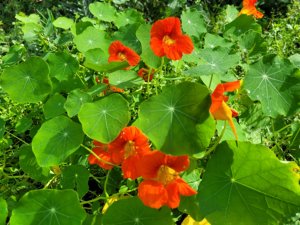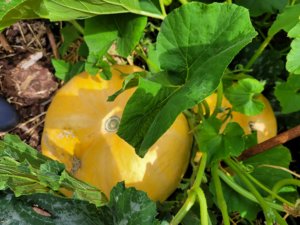ORGANIC GARDENING AT the ut campus
Employees, retired employees and students of the UT, who love gardening, can become a member of the Organic Gardening Society Drienerlo (BTD). They can then practice their hobby alone, or together with others, in their own garden at the BTD garden complex that is centrally located at the UT Campus (between the Contact Centre (De Boerderij) and the Seinhuis). Feel free to take a look and meet some of our gardeners!
 Many people wonder what organic gardening actually means. The simple answer is that we do not use synthetic fertilizers or pesticides on our gardens. But gardening organically is much more than what you do not do. When you garden organically, you think of your plants as part of the entire natural ecosystem that starts in the soil and includes the water supply, people, wildlife and even insects. We strive to work in harmony with nature. It starts with paying attention to the soil, by regularly adding organic matter, as much as possible from the gardens themselves (locally produced compost) or from the neighbourhood (animal manure). The BTD regularly buys manure, and gardeners produce compost on their own garden from their own decaying plant wastes, the ideal organic matter for your garden soil. If you add these nutrients on site, you are already well on your way to raising a beautiful, healthy garden organically.
Many people wonder what organic gardening actually means. The simple answer is that we do not use synthetic fertilizers or pesticides on our gardens. But gardening organically is much more than what you do not do. When you garden organically, you think of your plants as part of the entire natural ecosystem that starts in the soil and includes the water supply, people, wildlife and even insects. We strive to work in harmony with nature. It starts with paying attention to the soil, by regularly adding organic matter, as much as possible from the gardens themselves (locally produced compost) or from the neighbourhood (animal manure). The BTD regularly buys manure, and gardeners produce compost on their own garden from their own decaying plant wastes, the ideal organic matter for your garden soil. If you add these nutrients on site, you are already well on your way to raising a beautiful, healthy garden organically.
 The other key to growing organically is to choose plants (vegetables and flowers) that are suitable for the local sandy soil. Plants that are adapted to our climate and conditions grow well without much attention or input. On the other hand, when you try to grow a plant that is not right for your site, you will probably have to boost its natural defenses to keep it healthy and productive.
The other key to growing organically is to choose plants (vegetables and flowers) that are suitable for the local sandy soil. Plants that are adapted to our climate and conditions grow well without much attention or input. On the other hand, when you try to grow a plant that is not right for your site, you will probably have to boost its natural defenses to keep it healthy and productive.
The advantage of a society like ours is that we can learn a lot from each other, exchange plants and experiences and together we can create a beautiful complex that also provides your own healthy food.
By mid-2024, the society had around 110 garden units (of 22.5 m2 each), some communal flower and herb gardens, an orchard and a berry garden for 62 members and 16 so-called garden herb members. Garden herb members are members who do not maintain their own garden.
